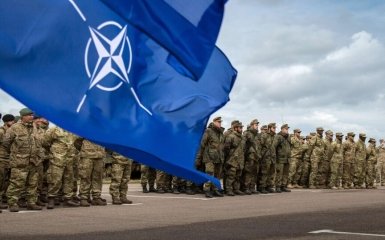The head of Germany's Federal Intelligence Service, Bruno Kahl, believes that the Russian Federation poses a direct military threat to Germany. An armed conflict is possible until 2030 .
Points of attention
- The head of German intelligence warns of possible Russian aggression and a military threat to NATO by 2030.
- NATO plans to increase the total number of troops by approximately 250,000 to protect against possible Russian aggression.
- In the future, NATO plans to increase the number of combat brigades and combat corps, as well as weapons and air defense systems.
- Germany's intelligence chief is calling for additional resources for German security services to effectively counter threats from Russia.
- According to confidential documents, NATO countries have agreed on the minimum necessary potential to protect against possible Russian aggression, increasing military indicators and weapons.
Russia may attack NATO by 2030
The head of the Federal Intelligence Service of Germany, Bruno Kahl, said that he sees a direct military threat from Russia.
The Russian armed forces must be ready to attack NATO no later than the end of this decade, said the head of German intelligence Kahl during the hearings at the Bundestag Parliamentary Control Committee.
He noted that the Kremlin views Germany as an enemy, as the country is Ukraine's second largest supporter.
We are in direct confrontation with Russia, Kal emphasized, adding that Vladimir Putin is concerned not only about Ukraine, but also about "the creation of a new world order."
In addition, Kahl reported that Russian special services are increasingly operating without any moral restraints. He stressed the need for additional resources for German security services to effectively counter these threats.
NATO is preparing for war against Russia
Due to the growing threat from Russia, NATO plans to increase the total number of troops by approximately 250,000 more. This is reported by Welt am Sonntag with reference to the not-yet-publicized plans that fell into the hands of journalists.
According to confidential documents of the German Ministry of Defense, in the spring of 2024, NATO countries finally agreed on the "minimum necessary potential" to protect against possible Russian aggression.
These "Minimum Capability Requirements" are set by NATO's top two military commanders, US General Christopher Cavoli and French Admiral Pierre Vandieu.
If in 2021 it was considered sufficient to have 82 combat brigades for all NATO countries together, then in the future there should be 131. Thus, the Alliance will immediately increase the number of brigades by 49, and each of them will be about 5 thousand soldiers.
To command these troops, the number of "combat corps" in NATO should be increased from the current 6 to 15, and the headquarters of divisions — from 24 to 38.
There is also a need to increase the number of weapons, in particular air defense systems, ammunition, high-precision long-range weapons, as well as means of logistics and transport. The number of ground-based anti-aircraft systems is expected to increase from 293 to 1,467, an increase of 1,174, including weapons systems such as the Patriot, Iris T-SLM, Skyranger, and close range defenses. It is also expected to increase the number of helicopters from 90 to 104 units.
As Welt points out, these are general requirements for all 32 NATO member countries, which will be distributed among them. The target indicators for each country will depend on the level of "wealth" and the size of the population, according to the documents of the German Ministry of Defense.



